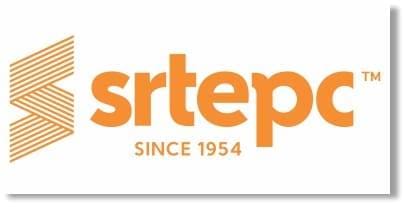Hon’ble Union Finance Minister Smt. Nirmala Sitharaman presented the Budget 2022-23 on Tuesday focusing on 4 pillars of the Indian economy, viz., manufacturing productivity, financing investments, climate action and PM Gati Shakti plan.
Shri Dhiraj R. Shah, Charman, SRTEPC congratulated Hon’ble Prime Minister Shri Narendra Modi, and Hon’ble Union Finance Minister Smt. Nirmala Sitharaman for presenting the Budget which is a growth-oriented and futuristic.
The Budget has signaled increased allocation for the textile sector by 8.1% increase in FY23 compared with the revised budget allocation for FY22.According to the Union Budget presented on Tuesday, of the total allocation of Rs. 12,382 crore for the textile sector for next financial year, Rs.133.83 crore is for Textile Cluster Development Scheme, Rs. 100 crore for National Technical Textiles Mission, and Rs. 15 crore each for PM Mega Integrated Textile Region and Apparel parks scheme and the Production Linked Incentive (PLI) Scheme.Shri Dhiraj R. Shah, Charman, SRTEPC informed that increased budget allocation for the textiles sector will help in growth of the industry and technological advancement.
The Centre has also allocated Rs.105 crore for FY23 towards the Raw Material Supply Scheme. Moreover, trimmings, embellishments, labels , etc. which were subject to 5% import duty will now be available as duty-free imports for exporters of textiles. This is going to boost our exports of value-added items like made-ups, etc. Shri Dhiraj R. Shah, added.
He also informed that, at present, machinery such as for knitting and weaving machines are included in the list of machines having Concessional Custom Duty of 5%. All these machines will attract 7.5% import duty. This will encourage the textile engineering segment to manufacture more state-of-the art textile machineries within the country in line with the “Make in India”, AtmanirbharBhart, initiatives of the government.
The Budget has also mentioned on the review of customs exemptions and tariff simplification for certain items including fabrics. “This comprehensive review will simplify the customs rates and tariff structure particular for sectors like chemicals, textiles and metals, and minimise disputes,” she said.
The rationalization of the Customs duty that includes the ad valorem tax and specific duty will be helpful for industry in the long term, SRTEPC Chairman mentioned.
Some of the major issues mentioned during the Budget are the following:
- New regulations to replace the Special Economic Zones Act for the development of enterprise and hubs. It will cover the existing industrial enclaves and enhance the competitiveness of exports.
- The Emergency Credit Line Guarantee which has provided additional credit to MSMEs, extended till March 2023. Guarantee cover to be expanded by Rs.50,000 crore to a total cover of Rs. 5 lakh crores. Additional amount earmarked exclusively for hospitality-related sectors.
- With 1486 Union Laws repealed, Ease of Doing Business 2.0 will be launched.
- Allowing surcharge on all capital gain on all assets which have been brought down to 15 percent.
- The Budget stepped up the capital expenditure sharply by 35.4 per cent to Rs 7.50 lakh crore to attract more private investment and attract growth.
- For 2022-23, allocation of Rs 1 lakh crore is announced to assist the states in catalyzing overall investments in economy.

